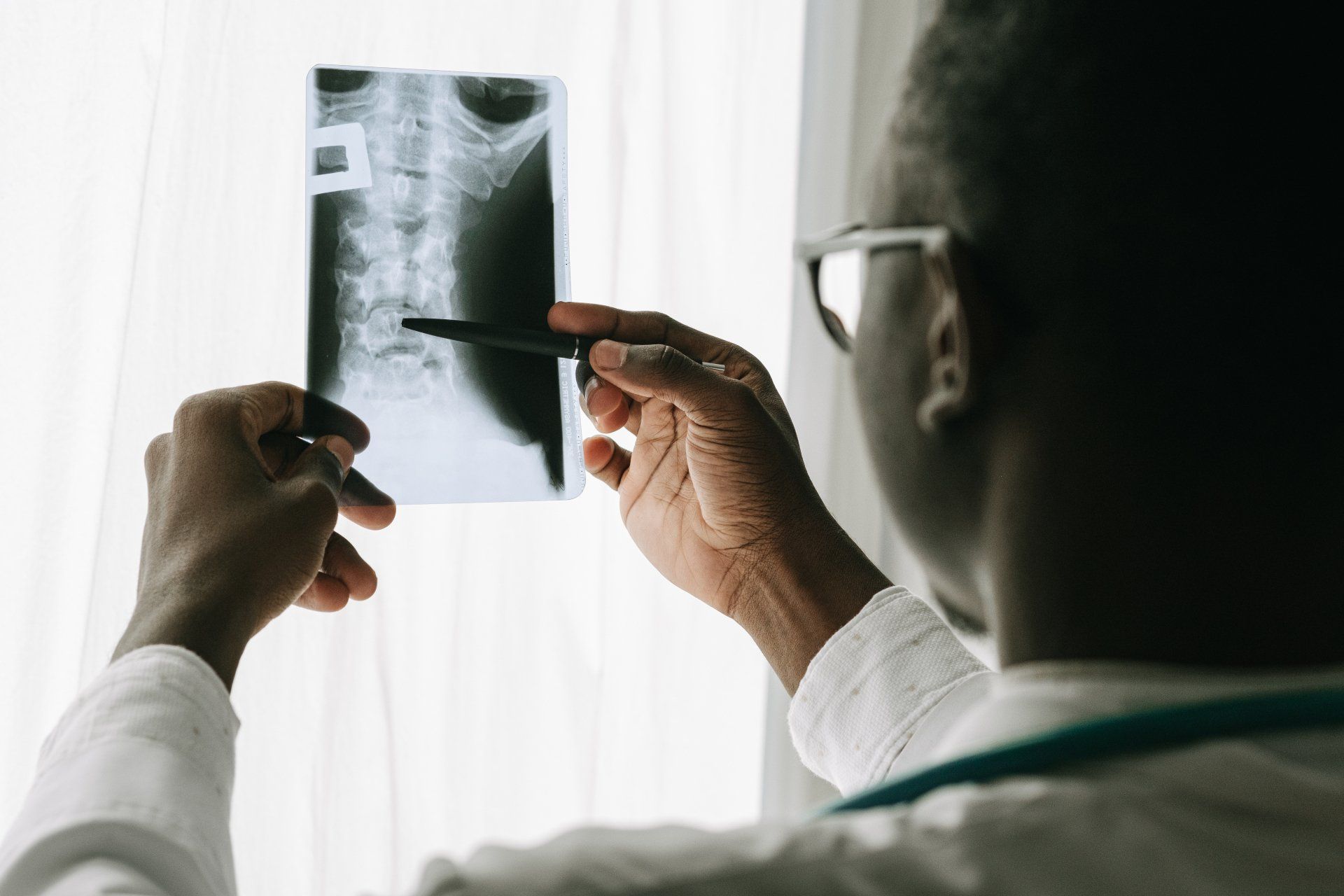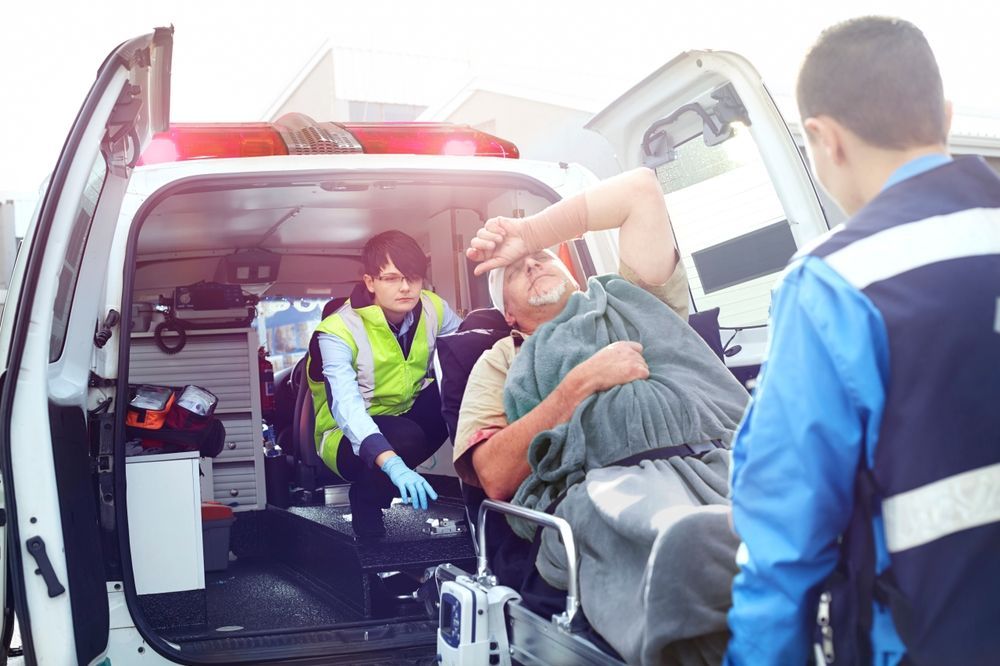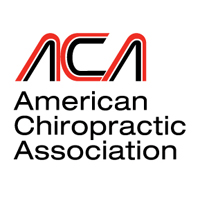What You Need to Know About Accident Injuries
- By Grappin Clinic
- •
- 04 Feb, 2025
- •
What is the Difference Between Major and Minor Injuries From Car Accidents?

Car accidents are an unfortunate reality that many individuals face at some point in their lives. When involved in a car wreck, one of the most pressing concerns is often the extent of injuries sustained. In personal injury cases stemming from car accidents, it is crucial to understand the difference between major and minor injuries.
Common Types of Major Injuries in Car Wrecks
Traumatic Brain Injuries (TBI): Resulting from a forceful blow to the head, TBIs can range from mild concussions to severe brain damage. Symptoms may include dizziness, headache, memory loss, and cognitive impairment.
Spinal Cord Injuries: When the spinal cord is damaged in a car wreck, it can lead to paralysis or loss of feeling below the injury site. This type of injury can have long-lasting effects on mobility and quality of life.
Broken Ribs: These can puncture lungs or other internal organs, leading to more severe complications.
Amputations: Traumatic amputations can occur during the accident or may be surgically required due to severe crush injuries or infections.
Recovery Process for Major Injuries
Identifying Minor Injuries That Can Have Major Consequences
Concussions are frequently overlooked in the aftermath of a collision but can result in serious cognitive impairments if not addressed promptly.
In many cases, what appears to be a minor injury following a car wreck can escalate into more severe problems down the line. It is crucial to seek medical attention and legal advice after an accident, even if you believe your injuries are minor.
By identifying these potential risks early on, you can prevent them from developing into major consequences that impact your quality of life. Remember, it’s always better to err on the side of caution when it comes to your health and well-being post-collision.
This distinction can significantly impact the legal proceedings and outcome of a case. By looking into car wrecks and the varying degrees of injuries that can result, we aim to explain this often confusing aspect of personal injury law. Understanding the nuances between major and minor injuries in such cases is essential for both victims seeking justice and legal professionals navigating these matters.
Traumatic Brain Injuries (TBI): Resulting from a forceful blow to the head, TBIs can range from mild concussions to severe brain damage. Symptoms may include dizziness, headache, memory loss, and cognitive impairment.
Spinal Cord Injuries: When the spinal cord is damaged in a car wreck, it can lead to paralysis or loss of feeling below the injury site. This type of injury can have long-lasting effects on mobility and quality of life.
Broken Ribs: These can puncture lungs or other internal organs, leading to more severe complications.
Amputations: Traumatic amputations can occur during the accident or may be surgically required due to severe crush injuries or infections.
Recovery Process for Major Injuries
In cases involving major injuries from car wrecks, extensive medical treatment and rehabilitation are often required. Patients may need surgeries, physical therapy, and ongoing care to regain function and manage pain. It’s crucial for individuals with major injuries to seek legal representation to ensure they receive proper compensation for their medical bills and suffering caused by the accident.
Whiplash, often dismissed as a minor injury in car accidents, can lead to chronic pain and long-term health issues if left untreated.
Back strains or sprains may seem insignificant initially but can develop into debilitating conditions over time.
In many cases, what appears to be a minor injury following a car wreck can escalate into more severe problems down the line. It is crucial to seek medical attention and legal advice after an accident, even if you believe your injuries are minor.
By identifying these potential risks early on, you can prevent them from developing into major consequences that impact your quality of life. Remember, it’s always better to err on the side of caution when it comes to your health and well-being post-collision.

Factors That Determine the Severity of Injuries in Car Accidents
Speed of Impact: The faster a vehicle is traveling at the time of impact, the more severe the injuries are likely to be. High-speed collisions often result in major injuries such as traumatic brain injury or spinal cord damage.
Type of Collision: Head-on collisions and T-bone accidents tend to cause more serious injuries compared to rear-end impacts. The angle and force of the crash can greatly affect the severity of injuries sustained by occupants.
Excerpt from article originally posted on: https://www.athenspersonalinjuryattorney.com/what-is-the-difference-between-major-and-minor-injuries...
Speed of Impact: The faster a vehicle is traveling at the time of impact, the more severe the injuries are likely to be. High-speed collisions often result in major injuries such as traumatic brain injury or spinal cord damage.
Type of Collision: Head-on collisions and T-bone accidents tend to cause more serious injuries compared to rear-end impacts. The angle and force of the crash can greatly affect the severity of injuries sustained by occupants.
Safety Devices:
The presence and proper use of safety features like seat belts, airbags, and car seats can significantly reduce the severity of injuries in a car accident. Failure to wear seat belts or having defective safety equipment can lead to more severe outcomes for individuals involved in crashes.
If you're looking for a medical evaluation or care and rehabilitation after an accident call to schedule an appointment at the Grappin Clinic near you 941-426-9551. (Walk-ins are welcome) Seven convenient locations
serving SW Florida residents and visitors.
Excerpt from article originally posted on: https://www.athenspersonalinjuryattorney.com/what-is-the-difference-between-major-and-minor-injuries...

There are various types of massage therapies, including sports massage, trigger point massage, deep tissue massage, and Swedish massage. Although these treatments can range in pressure, they all offer invaluable benefits for the body, mind, and spirit. Read on for the top six benefits of massage therapy.

Are you looking for a new, effective way to improve your physical health? Medical massage therapy is here to provide the natural health benefits you need. From optimizing circulation to relieving muscle tension and inflammation, medical massage is a powerful treatment for pain reduction and overall wellness.























